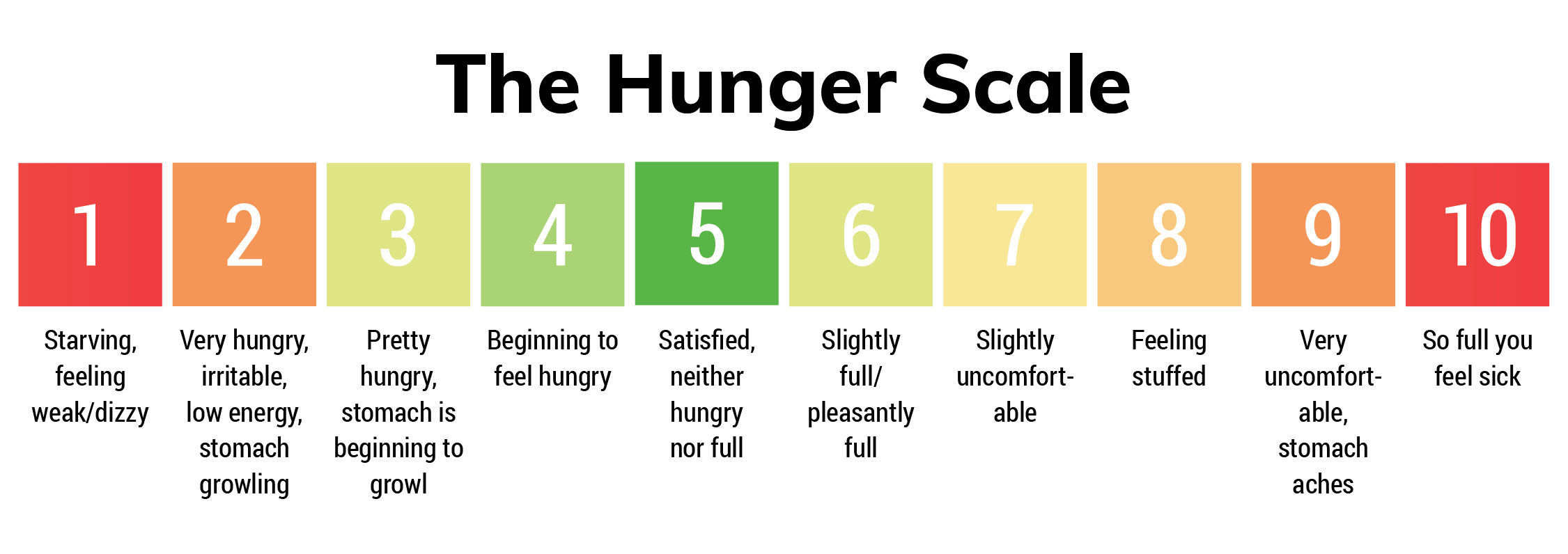
Heading off to college marks the beginning of an exciting time of life. The many positives, however, can be offset by increased stressors related to academics, relationships, finances and more. The combination of high stress, new freedoms and minimal resources sets many young people on a path of poor health habits that can be tough to break after graduation.
As a health and exercise professional, you h ave the opportunity to help support young adults with their health and wellness in the college years, which can set them up for creating healthy, sustainable habits and prevent disease into adulthood.
Although the Freshman 15 is largely a myth, it isn’t uncommon for students to gain weight when they begin college. In fact, a 2015 meta-analysis on college weight gain found that two-thirds of college students gain some weight, with one in 10 gaining 15 pounds. This weight gain is attributed to increased alcohol consumption, poor diet and unhealthy eating habits.
In addition to nutritional challenges and weight gain, college students are also at high risk for depression. A 2020 study found that the mental health of college students has been declining since the start of the pandemic due to increased stress. The study authors noted that “major depressive disorder and generalized anxiety disorder rates are more pronounced among low-income students; students of color; women, non-binary students, and students who are caregivers.” Supporting college students in creating healthier lifestyle habits can promote mental and physical well-being and potentially improve their quality of life during periods of high stress.
Of course, college students aren’t the only ones who are feeling the effects of stress. The following nutrition habits, which you can share with both your college students and parents who are sending their kids off to college, are largely applicable to just about anyone who needs to improve their diet and lower their stress.
Nutrition Survival Guide for College Students (and Just About Everyone Else)
1. Stock up on shelf-stable, nutrient-dense foods to have on hand rather than hitting the vending machine or drive-thru during late-night study sessions. Urge your clients to choose more nutrient-dense or filling options such as protein bars, peanut butter, whole-wheat crackers, trail mix, popcorn, etc. Combine these foods with fruits or vegetables from the cafeteria or dining hall to create a more balanced snack or meal.
2. Incorporate a fruit or vegetable as often as possible, preferably at every meal (five servings per day is ideal). If living off-campus, students might consider buying pre-washed vegetables such as baby carrots, sugar snap peas and celery to have vegetables readily accessible. Combined with hummus or nut butter (these come prepackaged into single-serving portions as well), vegetables also make for an easy, portable and filling snack.
3. Choose your drinks wisely. Many coffee drinks, energy drinks, sodas, teas and alcoholic beverages are high in calories and sugar, which can quickly add up. Aim to avoid sugary drinks when possible. Carrying a refillable water bottle can make it easier to stay hydrated. When something more flavorful than water is needed, watered-down juice can be a good alternative.
4. Start the day with a balanced breakfast. While it might sound cliché, a morning boost of energy can carry you through a busy day of classes, studying and socializing. Try to include something from at least three food groups, including a whole grain (such as a whole-wheat bagel, toast, oatmeal or Cheerios), a protein (such as a boiled egg or Greek yogurt), some healthy fats and a piece of fruit.
Here are some easy breakfast combinations that include foods often found at the cafeteria or that can be stored in a dorm-room minifridge:
- Greek yogurt with bananas and peanut butter
- Whole-wheat toast or bagel with peanut butter and berries
- A hard-boiled egg and oatmeal with blueberries
- Cheerios with a banana and protein shake
5. Practice mindful eating. Slowing down while eating can increase the enjoyment of a meal and help the individual tune into fullness cues. Disordered eating habits are common among college-aged women, according to this 2019 study. Developing a healthy relationship with food starts with listening to hunger and fullness cues and avoiding the diet mentality. Rather than restricting or avoiding food groups, aim to eat balanced meals that include a combination of proteins, grains and fruits/vegetables.
The Hunger Scale is a tool that can help clients tune into their hunger and fullness cues and bring awareness to any emotional eating they might be engaging in.

Encourage your clients to adopt the following mindful eating strategies:
- Avoid using screens while eating.
- Eat slowly. Putting the fork or spoon down between bites can help.
- Savor food by tuning into all the senses while eating. What does the food look like? What’s the texture? Taste? Color? Aromas?
- Make time for meals rather than multitasking while eating.
Exercise, Sleep and Emotional Well-being Habits
Physical Activity
Exercise is good for everyone, and college students are no exception. The change in routine from high school, which tends to be highly structured and scheduled, especially for youth who play sports, to college, where students are responsible for their own schedule outside of classes, often means that regular exercise falls by the wayside. For this reason, students may benefit from joining an exercise class or activity. Signing up for an activity-based class for credit, working out at the campus gym, or trying an intramural sport are all great ways to meet people and have a scheduled workout during the week. A 2020 study on the relationship between college students’ exercise habits and mental health noted a dose-response association between physical inactivity and poor mental health. The researchers concluded that increasing physical activity can improve mental health outcomes.
If a scheduled class isn’t possible, encourage your clients to use the campus gym resources, or design a quick body-weight workout they can do in their dorm or apartment (see sidebar).
The 7-minute Workout
The 7-minute workout is a short, effective circuit workout that hits each major muscle group and was designed by Brett Klika and Chris Jordan. It is based on research demonstrating that high-intensity circuit training (HICT) is an “efficient means of exercise to help decrease body fat, improve insulin sensitivity, and improve VO2max and muscular fitness.”
The exercises used in this workout are jumping jacks, wall sit, push-up, abdominal crunch, step-up onto a chair, squat, triceps dip, plank, high knees/running in place, lunge, push-up with rotation and side plank. The sample exercises target the upper and lower body and core. You can create variety by substituting different exercises that target these same muscle groups.
Each exercise is performed for 30 seconds, with 10 seconds of transition time between each exercise. The total time for the entire workout is approximately seven minutes, and the circuit can be repeated two to three times to create a longer workout.
Stress Management
Given that college students are at increased risk for depression and anxiety, it’s important to have a “toolbox” of stress-management techniques that you can offer your clients to help them prevent stress from becoming overwhelming. Many of these techniques are straightforward and are essential to overall health and wellness, while others are more specific to the stressors experienced by college students. These techniques include:
- Exercising
- Journaling
- Practicing mindful breathing or meditation
- Limiting social media time. Use apps or timers to prevent excessive usage.
- Creating boundaries and managing time
- Prioritizing good sleep habits and making time for rest
- Seeking out therapy or group counseling, if needed
Many college campuses now offer resources related to mindfulness, time management and financial management, which can also be pain points for college students. Many campuses offer free or low-cost services for students.
If stress or anxiety is leading to poor sleep and impacting daily routines, urge your client to contact a physician or utilize campus resources for counseling and behavioral health.
Sleep
College students aren’t exactly known for their exemplary sleep habits. After all, their schedules are generally packed with social and academic obligations, making sleep feel like a time waster. Of course, getting adequate, high-quality sleep can make a huge difference in a student’s health. For example, sleep can increase energy levels, improve moods and concentration, and help with appetite. A 2019 study examining the relationship between physical activity, sleep quality and mental health among college students found that poor sleep was associated with an increased risk of depression and anxiety.
Clearly, prioritizing sleep can help improve both mental health and physical well-being. Here are some tips you can offer your clients that may improve the quality of their sleep:
- As often as possible, try to go to bed around the same time each night.
- Incorporate an evening routine or ritual before bed (this can be as simple as taking a shower or washing your face/brushing teeth, reading and taking a few deep breaths). Doing the same routine each night can make it easier to fall asleep.
- Aim to get sunlight in the early morning.
- Avoid caffeine and naps in the late afternoon and evening.
- Avoid screens in the hour before bedtime, if possible.
- Try using a sleep mask, headphones, or ear plugs when noisy neighbors or roommates are a cause for poor sleep.
When coaching college students—or any busy and stressed clients, for that matter—focus on going back to basics with nutrition, exercise, sleep and stress management. Choose one habit at a time. Each of these areas of health will inevitably impact the others, so regardless of the client’s first goal, each new healthy habit will positively impact their overall health and well-being.
Expand Your Knowledge
 |
The ACE Fitness Nutrition Specialist Program is designed for health and exercise professionals who want to gain a deeper understanding of nutrition, learn how to help clients implement healthy food choices into their daily routine and understand how to address special nutritional needs for different types of clients, from those simply looking to get healthier to competitive athletes. You'll learn how to guide clients in selecting fresh, nutrient-dense foods, and couple this knowledge with behavior change strategies that will help your clients turn smart choices into long-term habits.
|
 |
As an exercise professional or health coach, it is important to remain within the scope of your practice when coaching nutrition and better nutrition choices to your clients. The Applying Nutrition Principles course bundle will equip you with information and meaningful behavior change techniques to help you support your clients in healthier food choices and implement into your practice immediately.
|
 |
This first-of-its-kind program equips you with the comprehensive science and advanced coaching methods you need to help everyone—from everyday people who are stressed-out and struggling to see results, to elite athletes and top performers who are seeking that extra edge—achieve restorative sleep, manage daily stressors and learn how to recover in ways they never knew existed.
|





 by
by 






